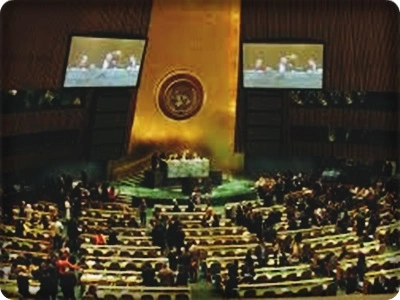Introduction
In an increasingly interconnected world, multilateralism plays a crucial role in addressing global challenges and finding effective solutions. However, as we move into the future, new challenges arise that require innovative models and approaches to maintain and strengthen the effectiveness of multilateral cooperation. In this blog post, we will explore the concept of multilateralism, discuss its current challenges, propose new models for multilateral cooperation, and present potential solutions to ensure its continued relevance in the years to come.
Section 1: Understanding Multilateralism
Multilateralism refers to the practice of multiple countries coming together to solve common problems through diplomacy and international institutions. It is based on principles such as equality among nations, respect for sovereignty, and consensus-building. The United Nations (UN) is one of the most prominent examples of a multilateral institution that facilitates dialogue and cooperation among nations.
Section 2: Current Challenges Faced by Multilateralism
While multilateralism has been successful in many areas, it faces several challenges in today’s world. These challenges include:
2.1 Rise of Nationalism and Protectionism
In recent years, there has been a rise in nationalist sentiments and protectionist policies. Some countries are prioritizing their own interests over global cooperation, which undermines the spirit of multilateralism.
2.2 Power Shifts and Emerging Powers
The global power dynamics are shifting with emerging powers such as China, India, Brazil gaining influence. This shift presents a challenge to traditional multilateral institutions that were established when power was concentrated among a few Western states.
2.3 Lack of Trust Among Nations
Trust among nations is essential for effective multilateral cooperation. However, geopolitical tensions and disputes have led to a decline in trust between nations. This hinders collaboration on pressing global issues.
2.4 Inadequate Representation and Inclusivity
Multilateral institutions must ensure that all nations, especially developing countries, have a meaningful say in decision-making processes. However, many argue that current models of multilateralism lack inclusivity and fail to adequately represent the diverse interests of all member states.
Section 3: New Models for Multilateral Cooperation
To address the challenges faced by traditional models of multilateralism, new models are emerging that promote more inclusive and effective cooperation. Some of these models include:
3.1 Flexible Coalitions
Flexible coalitions involve like-minded countries coming together to tackle specific issues without requiring the consensus of all nations. This approach allows for quicker decision-making and action on pressing global challenges.
3.2 Issue-Based Networks
Issue-based networks focus on bringing together relevant stakeholders from governments, civil society organizations, academia, and businesses to collaborate on specific issues or sectors. These networks allow for more specialized expertise and targeted solutions.
3.3 Regional Integration
Regional integration organizations such as the European Union (EU) have demonstrated the potential for deeper coordination and cooperation among member states within a specific geographical region. Expanding regional integration efforts can complement global multilateralism.
3.4 Strengthening Existing Institutions
Rather than creating entirely new institutions, strengthening existing ones like the UN can be a viable approach. Reforming decision-making processes, enhancing representation, and boosting resources can increase effectiveness and legitimacy.
Section 4: Potential Solutions for Future Multilateralism
To ensure the long-term relevance and effectiveness of multilateralism in addressing future challenges, several solutions could be considered:
4.1 Engaging Civil Society Organizations (CSOs)
Involving CSOs in multilateral processes can bring diverse perspectives and expertise to decision-making discussions. CSOs often represent marginalized voices and can contribute valuable insights into key issues.
4.2 Enhancing Digital Diplomacy
Leveraging digital technology can enable greater participation and engagement of various stakeholders in multilateral discussions. Virtual conferences, online platforms, and social media can facilitate dialogue and cooperation on a global scale.
4.3 Promoting Youth Engagement
Young people are key stakeholders in shaping the future of our world. Encouraging their active participation in multilateral processes through youth forums, mentorship programs, and educational initiatives can ensure their voices are heard and considered.
4.4 Investing in Capacity Building
Supporting capacity-building efforts in developing countries can empower them to actively engage in multilateral negotiations and contribute effectively to decision-making processes. This would help address the issue of inadequate representation.
4.5 Strengthening Norms and International Law
Reinforcing international norms and laws that govern state behavior can enhance compliance with multilateral agreements. Strengthening enforcement mechanisms and accountability frameworks will promote trust among nations.
Conclusion
Multilateralism remains vital in addressing global challenges, but it must adapt to new realities. By embracing innovative models of cooperation, enhancing inclusivity, and implementing potential solutions, we can ensure its continued relevance for a more prosperous and peaceful future. The challenges of today demand collective action, and by working together, we can overcome them for the benefit of all nations.



